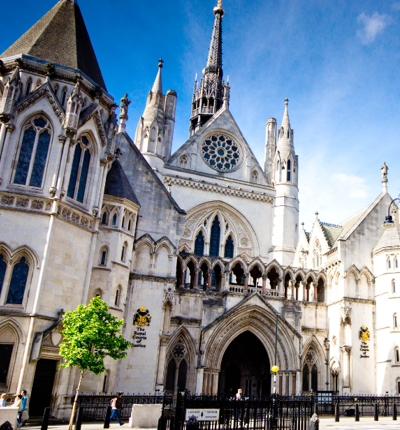
High Court to hear legal challenge against Trafford Council’s tax reduction scheme
Two Trafford residents have brought a High Court legal challenge to Trafford Metropolitan Borough Council over a recently-introduced council tax reduction scheme, which they say unlawfully deprives low-income households of vital support.
Posted on 23 July 2025
Both claimants, who are disabled or caring for a disabled person, unexpectedly received a large council tax bill this year as a result of Trafford Council's new Working Age Local Council Tax Reduction Scheme, introduced in April.
The claimants argue the scheme discriminates against disabled people and carers who receive certain types of benefits, because it unfairly double counts benefits intended to support them with their disability or caring responsibilities as part of their income under the scheme.
As a result, vulnerable and disabled people receiving certain benefits now face the prospect of paying hundreds of pounds in council tax, when previously under the scheme they did not have to pay any council tax at all.
The application for judicial review is scheduled to be heard in the High Court on 24 and 25 July 2025.
Their legal challenge centres on two key grounds:
- Unlawful adoption: The council never lawfully approved the scheme through a vote of the full council, as required by law. Instead, the decision was improperly taken by the Executive Committee in December 2024.
- Discriminatory design: The new scheme uses a means-test that ‘double counts’ certain income, such as carer benefits and pensions, already considered when calculating Universal Credit awards. This results in some residents appearing better off than they are due to such income being double counted and then being denied support entirely. The claimants argue this design is discriminatory and breaches the Equality Act and the Human Rights Act.
The Council has acknowledged that the flaw leaves nearly a quarter of working-age council tax support claimants worse off. Though some residents have been granted short-term discretionary relief, many continue to receive no support under the main scheme and are therefore at risk if discretionary relief is denied.
The claimants are asking the court to:
- Cancel the scheme, because it was not lawfully adopted.
- Declare that the way the scheme calculates income is irrational and discriminatory.
- Require the council to fix the flaws in the scheme so that people are not wrongly denied support.
- Award compensation for the harm the claimants have suffered under the scheme.
The claimants are represented by Carolin Ott and Sarah Crowe, human rights solicitors at Leigh Day and Tom Royston of Garden Court North Chambers and Jack Castle of Henderson Chambers.
One of the claimants, who is a full-time carer for their disabled child and currently relies on Carer’s Allowance and Universal Credit, said:
"I’m not in a position to work, and every penny I receive goes toward meeting our basic needs.
"Out of the blue, I was issued with a full council tax bill for hundreds of pounds. There was no warning, no explanation - just a demand for money I simply do not have. When I contacted the council to try to understand what had happened, I wasn’t offered any meaningful support or clear guidance. I was just told to apply for a discretionary payment, with no reassurance or explanation. This situation has caused me deep emotional distress. I’ve experienced anxiety, sleepless nights, and constant worry - on top of the daily pressure of caring for my child. The sudden financial shock, combined with the lack of clear communication from the council, has left me feeling helpless and forgotten.
"I’m speaking up not just for myself, but for the many others in my position who are suffering in silence. Unpaid carers like me are saving the system thousands of pounds by providing full-time care at home - yet when we need help, we’re often met with confusion, indifference, or red tape. Local authorities must do better. They need to recognise the emotional and financial strain carers are under, communicate clearly and compassionately, and ensure vulnerable households are not being unfairly penalised simply for doing their best in incredibly difficult circumstances."
Carolin Ott said:
"Council tax reduction schemes are a vital lifeline for people on low incomes, including disabled people. Our clients should never have been put in the position of having to fight for a fair system. Trafford Council’s scheme not only appears to have been unlawfully adopted, but it also unfairly penalises those who have done nothing more than receive the benefits to which they are entitled. We hope the Court will find the scheme unlawful and ensure Trafford residents get the support they need and deserve."




